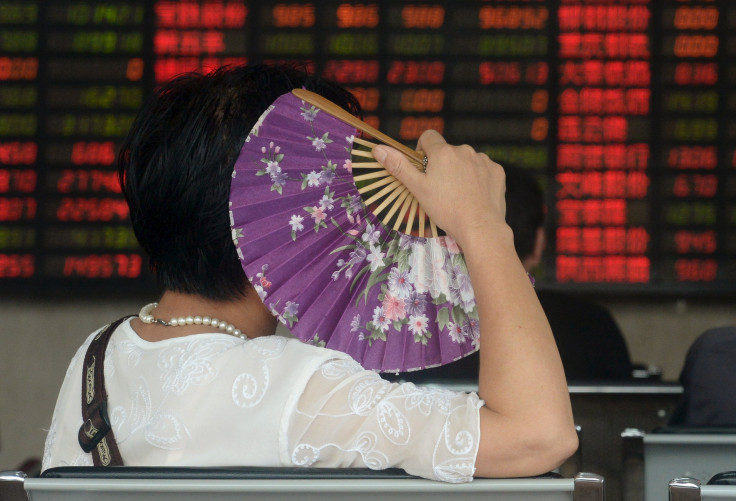China's Markets Fall Again, Asian Stocks Mixed After Day Of Volatile Trading

SHANGHAI -- Chinese stock markets continued to reflect the uncertainty gripping global bourses on Wednesday -- with mixed results and a great deal of volatility, after the People's Bank of China’s decision Tuesday to cut key interest rates.
China’s markets closed lower after rising sharply earlier in the day, as did Hong Kong’s Hang Seng Index, while other Asian markets reacted more positively.
The main Shanghai Composite Index (SCI), which had risen as much as 4 percent, fell back on a late sell-off, as traders sought to lock in profits. It closed 1.27 percent down at 2,927 -- its lowest finish this year. The SCI has now lost more than 20 percent of its value over the past four days of trading.
The secondary index in Shenzhen fell even further, closing just over 3 percent down, while the ChiNext market for small and high-tech companies, which had risen fastest earlier this year, lost just over 5 percent of its value. The falls followed Tuesday's plunge of more than 7 percent on all China's main indexes. In Hong Kong the Hang Seng also fell, rose, and then fell back again, closing just over 1.5 percent down.
Japan’s Nikkei closed up for the first time in seven days, however, with its 3.2 percent rise -- the biggest single-day gain for almost 10 months -- compensating for much of the previous day’s 3.9 percent fall. Analysts said investors were seeing value in the market, with a sense that shares had been oversold in response to fears about China's stock market -- and economy -- earlier in the week.
In Australia, the ASX 200 also closed higher, up almost 0.7 percent, after falling in morning trading. Prime Minister Tony Abbott sought to reassure investors that the global market turmoil was simply a correction following “over-exuberance” during China’s stock boom earlier this year, and said there was no reason for Australians to lose confidence in their nation’s economic future.
But uncertainty about the future was still evident in China, where the fall came in spite of reports that government-backed funds had invested heavily in financial institutions in a bid to boost the market. Analysts generally welcomed Tuesday’s decision by the People’s Bank of China to cut interest rates by a quarter percentage point, and the bank reserve requirement ratio by half a percentage point, in order to enable banks to lend more money. However, many analysts, including from Goldman Sachs, suggested that this would not be sufficient in itself to reverse the slowdown in China’s economic growth, which has affected global investor sentiment. Researchers at ANZ Bank predicted a further cut in the reserve requirement ratio would be needed in the final quarter of the year, and said China also needed to undertake "more financial liberalization."
China on Wednesday also announced the arrest of a senior official from Citic Securities, the country's biggest brokerage, for reasons not yet clarified. There were also reports that police had detained one current and one former official from China’s securities regulator, as well as a journalist from leading finance magazine Caijing, in connection with a report late last month that the government was planning to pull back from intervening in the markets to prop up share prices. The report sent share values plunging at the time, and some analysts said the arrests may have been designed to reinforce a message that some of the problems on China's stock markets were the result of misinformation or manipulation. Last month the authorities arrested several brokers, accusing them of manipulating share prices.
Chinese state media also sought to reassure global opinion, with the official Xinhua news agency saying that neither the slowdown nor the falls on the Chinese market were cause for panic. The Global Times newspaper, meanwhile, sought to calm readers by emphasizing that “the Chinese stock market and the economy are not closely related." However, it did acknowledge that amid what it described as “the uncertainty” in China’s markets, "ordinary investors will be better off being spectators."
© Copyright IBTimes 2024. All rights reserved.





















